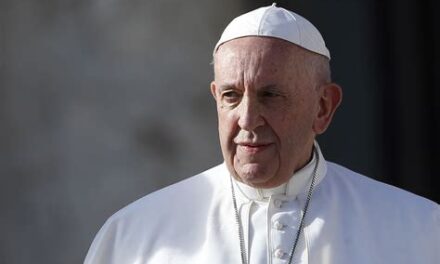November has reached its end, even as I write, and, fair enough to say, it’s been about as eventful as a November can be, or almost so. The country saw a mid-term election: not quite as important as a presidential election, but one with its share of suspense—especially since everybody knew the Republicans were virtually guaranteed to hold the Senate and the Democrats equally sure to re-capture the House. And so they did.
Yet, in a few states, the parties nominated candidates so equally good or equally bad that the voters simply could not give either a sufficient number of votes to settle the issue quickly. Arizona, Montana, Florida, and Georgia took longer to decide than anyone would have anticipated in quieter, more peaceful times.
And then was college football. Who will deny that November ought to have settled the matter of who the worthy contenders were? So this year, like the predictable mid-term elections, everybody had a pretty good idea of what the top ten would look like by month’s end, except in the actual event. Indeed, Alabama started the month number one and ended number one. Heigh-ho. However, nobody, so far as I know, anticipated Ohio State’s blowout of Michigan, or the seven-overtime L.S.U. vs Texas A&M match with 146 points scored and over a thousand yards in combined total offense. And to top it all off, a total of ten teams from the top twenty lost—all this on the last weekend of the month.
Surprises all around. And I haven’t even addressed the weather.
November also saw the celebration of some anniversaries. One was the murder of Harvey Milk in San Francisco, and the other was the Jonestown massacre, both in 1978. I know little about Milk except that he probably was nothing like Sean Penn. But Jonestown I remember very well. I was in my first semester as a graduate student at the University of Dallas when I awoke in darkness to voices in the hall, low whispers in my memory, speaking ominously of the military’s being on alert. What was I to think? I assumed the country was on the verge of war, with whom or for what reason I couldn’t be sure. And, anyhow, I was half asleep.
But the whispers were no dream. Not long after the dawn broke, the world knew at least something about Jim Jones and the cult that he had drawn to himself, the Peoples’ Temple in Guyana (via Indiana and San Francisco), the murder of a group of investigators led by U.S. Representative Leo Ryan, and then the horrific mass suicide of the 900-plus cultists, votaries of the great man, by means of a cyanide-laced “Kool-Aid”—although there’s some dispute about whether that was the medium of choice. No matter: most of the people in Jonestown did as they were told and died.
Did Jim Jones believe himself a great man? It’s hard to imagine otherwise. He fits the pattern of a strange phenomenon that appears from time to time of the magnetic, perversely gifted personality, a man who, whether visited by strange dreams or simply convinced of his singularity, almost necessarily becomes the core figure in the lives of people desperate for a face or a, like Conrad’s Kurtz, a voice that will make the mess of daily life suddenly clear, open to solution if they, the people, will only follow. And, indeed, the solution is the man himself.
This phenomenon has not been lost on those chronicling the events in this fortieth year after Jonestown. Although most of the articles that have appeared confine themselves to the sequence of events—chilling reading by anyone’s standard—a few pieces (at Yahoo! and Newsweek, for example) have truly brought Jonestown into the 21st century. At reddirtreport.com, a site probably as new to you as it was to me, a headline, surprisingly from 2017, reads “TRUMPTOWN: A swirling Jonestown Vortex of cult-like brainwashing and Trumpist madness.” Anyone surprised by that? Write about Jim Jones in 2018, and where does it lead? A direct line from Guyana to the White House.
Is the comparison fair? In the minds of many a frantic leftist, of course. One of my Anglican priests had told me recently of a conversation with a very liberal woman whose core assumption is that Trump is a Nazi. She’s not alone. Kevin Williamson reported in National Review Online just weeks ago about a trip to Oregon where he routinely encountered residents who almost daily expect the arrival of boxcars and jackbooted guards, courtesy of the Donald.
How has such a mindset come into being? For me, President Trump is a thoroughly gauche figure, ignorant of the Constitution and history, devoid of manners, and lacking self-control. He remains what Ann Coulter eventually concluded he was, “a shallow, lazy ignoramus.” But he’s no Adolf Hitler or Heinrich Himmler. So what’s up?
Behind the tendency to vilify men such as Trump lies the opposite pull, the urge to lionize somebody else. Now it’s one thing to praise someone who is genuinely talented, who possesses a genius for rhetoric or statecraft or anything else, for that matter. Donald Trump will never send boxcars to Salem, Oregon or Salem, Massachusetts, but he will retain a loyal cadre of worshipers regardless of what he does. All one has to do is listen to Sean Hannity to figure out that conservative principles don’t mean a thing where Trump is concerned. Although he hasn’t yet, the president can evolve leftward if he wishes, and his fans won’t blink an eye.
The Obama cult was no less disturbing. Remember the YouTube video of celebrities pledging “to serve” not their country but Barrack Obama? Remember Oprah declaring not only Obama’s surname but also his Christian name insufficient; he was “the One”? Remember Evan Thomas of Newsweek declaring “I mean in a way Obama’s standing above the country, above— above the world, he’s sort of God.” That was in the middle of 2009, months before the Norwegian Nobel Committee announced Obama as its choice for the Peace Prize because he had (in six months!) changed the state of world politics. Odd thing, though: Obama’s election occurred two weeks before the thirtieth anniversary of Jonestown without anyone’s noticing.
Aside from the rather obvious bias in the media’s linking of Trump and Jones, the adulation for both Obama and Trump, and the auxiliary conviction that each man’s election inaugurated a new golden age, ought to give saner men the jitters. True, neither president literally dispensed sugar-coated poison to anyone. They didn’t need to.
The hero worship they narcissistically crave, which thousands are willing to give them is poison enough to constitutional politics. Of voters (or votaries) continue to raise such men to power, regularly jettison principle in favor of “the man,” ignore deficiencies of character that would disgust them in anyone else, and call their new demi-gods the “one.” We should expect nothing less than, to borrow from Jim Jones’ farewell, “revolutionary suicide” without the cyanide—a far cry from the revolution our country brought to politics two hundred years ago.















“For me, President Trump is a thoroughly gauche figure, ignorant of the Constitution and history, devoid of manners, and lacking self-control.”
You mindlessly, smugly parrot brainless media memes. You cite not a particle of evidence.
All I can say is, I have heard Trump speak about the Constitution on multiple occasions, and he sounded quite knowledgeable. No one has ever emerged from a meeting with Trump with a report of bad manners. Quite the contrary.
And what about self-control? I suspect you accept the lamestream meme that Trump impulsively tweets at 3 a.m.
Trump’s tweets are brilliant. They are a masterful exercise of military intelligence. He has an IQ of 156. You don’t know anyone with an IQ of 156. Neither do I. Trump demonstrates his genius daily–and people who are not too intellectually slothful are able to see it.
I would have thought that any “Christian” would call attention to the fact that Obama is an abortion fanatic, and Trump is pro-life. Even discussing them with such smug “evenhandedness” is morally putrid.
Thank you for your insightful observations..you are right!
Christians who do not read their bible don’t know all the ones God used for His purposes..
President Trump is nothing if not honest and has the best interests for our country however ” unpresidential” he seems..
He is a genius and has prophetic insights.
God can use anyone and there is always room for growth..( look at you and me)…